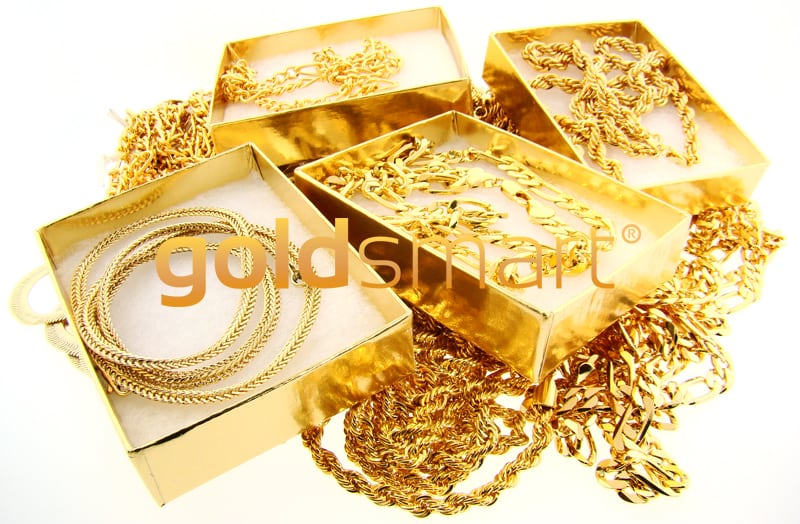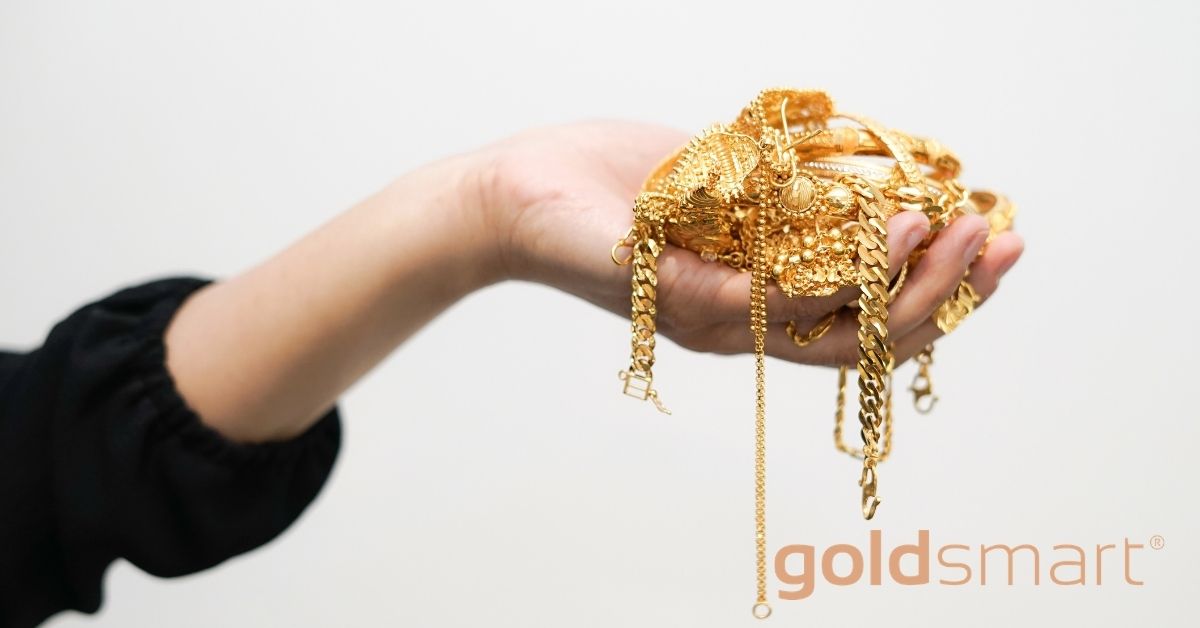
Becoming a trusted gold buyer in New Zealand involves a lot more than just buying people’s gold. Many believe they can develop a market by just hanging a shingle, in-person or online, and with the current gold market the world will beat a path to their door. That will last for may about the first few transactions, and when word gets out the operation is questionable, then the traffic will avoid such a business like the plague. Unfortunately, a lot of damage can still be done in these early days by a questionable player, which is a common practice involving changing names, front, appearances and then suddenly disappearing. And those who get burned most often tend to be folks trying to sell gold for the very first time ever.
Technical Criteria
A reputable gold buyer will be regularly and always applying bona fide, objective equipment independently measured and set when evaluating gold for purchase. This includes far more than just a typical weigh scale. First, the scale will be set to measurements that apply to a Troy ounce, not just standard weights. Second, the gold buyer will also be using standard, industry tools for validating the purity of the gold in question. Third, the buyer will apply references for any hallmarks or standards apparent in the gold that certify its quality and manufacture, and fourth, the buyer will also apply standard chemical testing as well as conductive to insure the gold is accurate and not simply some kind of dupe or facsimile of the real thing. Much of this application and equipment know-how comes from professional training and experience, understanding the various methods used in the market for fraud and how to prevent it as well. Nobody with a valid interest in selling real gold should be offended by any of this equipment or testing material; the use of these tools protect both the seller individually as well as the market as a whole from the damages of fraud that ultimately end up being paid for by the entire market in higher prices, fees and cost recovery.

Professionalism as a Standard
The behavior and practice of a quality gold buyer will stand out with professionalism as well. Highly trained reputable buyers will show themselves by their consistent service, dedication to quality, and reliability. Professional buyers, for example, will have no issue with providing appraisals and validations without any pressure to commit or force a sale at a low level. They are focused on maintaining the integrity of the market as a whole and want to see quality product move with known documentation and validation as much as possible. Appraisals also provide professional buyers a frequent pulse of the gold available locally, its type, nature, quantity and quality. This too goes a long ways toward indirectly helping prevent fraud, particularly when it suddenly shows up from unknown and unexpected sources locally that never existed before.
The appraisal process is kept transparent and well documented so that it can be objectively repeated if necessary under the same criteria by another appraiser, confirm the results. The more consistent the appraisal standard and reports, the more stable the local gold market tends to be with known product availability.
Along the same lines, honesty and competence go hand in hand with professional gold buyers. It’s not possible to suddenly show up one day and become a bona fide gold buyer with referenced and recommendations in 24 hours. High quality buyers have earned their stripes over time and performing thousand upon thousands of evaluations, providing fair pricing and reports that can be validated and tested by other appraisers accurately.
Professionalism also involves discretion and privacy. Nobody wants to walk around advertising that they are selling gold for a variety of reasons. First, personal safety and security are always an issue when physically carrying precious metals. Second, the motivations or purpose for selling old gold is a private matter and simply no one else’s business. Third, discussion one’s financial reasons for selling old gold can have social ramifications, particularly in smaller communities, which is unnecessary. Professional gold buyers are highly sensitive to all these issues and make a point to protect their customers’ privacy and safety in every transaction.
A professional buyer won’t make grandiose promises. The value of a purchase will always be based on the objective quality of the gold being sold and its worth on the current resale market discounted for a business buyer to make a reasonable profit on the same. Anyone who is marketing skyrocket prices or get-rich-quick schemes is flat out lying or misleading people through omission about what’s possible with selling gold.

Why are There So Many Poor Buyers?
Where there is a high demand for anything that is valuable, there will always be a subset of the population that shows up to cause problems. These characters range from outright criminals and conmen to businesses and players who live right on the edge of wrongdoing but still function legitimately, they just fail an ethical behavior rating horribly. It’s been a long-standing problem that people can be easily separated from their valuables in the business world.
Problem buyers go as far back as the Romans at least with their “caveat emptor” warning (beware buyer), and probably a lot earlier. No different than the markets of ancient times, private gold sales come down to bargaining and personal negotiation. And that leaves a lot of room for misrepresentation. After all, one operates literally at arm’s length in private party sales without anything else to work with.
In the modern world, the Internet has made things a lot worse. While the benefits of the digital world have connected people over far greater distances than they ever would have been involved otherwise, it has also opened to door for types who have no good intention whatsoever when involved in gold buying and selling. While on the selling side the big problem involves sellers who know they are trying to offer a gold product that isn’t what it seems, on the gold buying side the issue involves separating people from what they own while giving them less in return. The difference between the massive criminal profit of the venture.
The most common and worst buyer trick is to convince a private seller that when they part with their gold, they will be paid. This is outright theft and, amazingly, people fall for it quite regularly. Scams like the African prince or government representative email needing to use a person’s bank account overseas proves the case, causing millions of dollars of victims’ money to wire transfer into Nigeria or similar and never be seen again. The entirety of these types of scams depend in the victim being so enamored at getting something more for nothing or little cost, they will part with their money or gold to make a big win. It never happens. Another method, which is very digital in nature, involves a chargeback. The buyer offers to buy with a credit card and the payment seems to go through. The seller sends the gold and all is good. Then, 30 days later, the credit card payment is reversed. What happened? The buyer used the credit card protection system to flag the sale as a fake “fraud” triggering a chargeback and retraction of the payment. The buyer is now out the gold and money. The person’s gold, however, gets sent in the mail, and the thief laughs at the gullibility of the victim.
The second buyer trick type involves the slick sale or hard pressure tactic. Again, the lure of the great sale price is involved, but it never happens. In these cases, the unscrupulous buyer is again taking advantage of people’s greed to convince them a sale is going to be their big win. These transactions tend to be barely legal and often involved ambiguous language, hidden fees, fast-talking and lots of pressure that the offer will end right away, and the private seller has moments or minutes to grab a fleeting opportunity. While the sale does occur and the seller does get paid, it ends up being nothing that was expected, chopped down with dozens of fees buried in paperwork language, dubious shipping and handling costs, appraiser fees, market fees, reselling fees and so on. In fact, there’s probably a dictionary somewhere with all the made-up fees and technical term charges one can come up with in this arena.
The third buyer trick type involves a consortium or Ponzi scheme type setup. These are illegal but often operate for months or years with seeming legitimacy. These schemes are designed to pull people in, get them to be serious involved, and also use victims to find other victims. It often starts with the victim being offered a really good sale and seemingly paid a price too good to be true. It happens the victim is hooked. Real cash hit their bank account, so it must be true, right? The payment is a temporary trick. The goal is to win the trust of the seller and get them to engage more. The more they sell, the bigger the stake, the less the payout. The seller is also motivated to find other victims and use the same scheme. The gold and money flows in, initial payments are made with other victims’ money, and eventually the scheme collapses. When it really matters, everyone’s gold and money have suddenly disappeared. The culprit was at the top of the scheme banking the interim transactions and paying out as little as possible.

The Gold Smart Difference Versus Other Gold Buyers
Gold Smart has enjoyed a long-standing reputation for serving customers with fair pricing on old jewellery, bullion gold, gold accessories and other forms of the previous metal. The company remains committed to maintaining a high quality service as a gold appraiser as well as a competitive player in the market for gold resale. There is not argument there are plenty of other options for selling one’s gold, but if safety, reliability, fairness and trustworthy service are on the criteria list, those options will shrink down very quickly to a few players, Gold Smart being at the top of the list.
Gold Smart as a precious metal buyer is very clear about what we buy as well. Gold in solid form is an ideal product, and it can be in bullion bar, bullion coin, or jewellery form as well as accessories. All types of gold are eligible as long as the content is solid, including white gold, yellow gold and rose gold among other forms. What is not purchased includes gold-plated material, gold leaf and gold roll products, and gold alloys mixed with other metals such as brass or copper.
The high majority of private sellers Gold Smart transacts with tend to be first-time customers. That normally involves a lot of trepidation, concern and unfamiliarity with the process in general. As a result, Gold Smart makes a point to education and help customers realize what works best for them in a gold-selling transactions, including understanding how the validation process works, the role of the gold buyer in evaluation, and how the final price offer is constructed. Unlike less-than-stellar options that try to use gimmicks or fast-talking to distract from how an low-ball offer is put out, Gold Smart provides a patient environment where our buyers will never pressure a customer into a sale he or she is not sure about.
Connect with Gold Smart and sell your gold safely and reliably. There’s no need to take risks. Our professional gold buyers protect you and the market everyday with a proven, safe system.